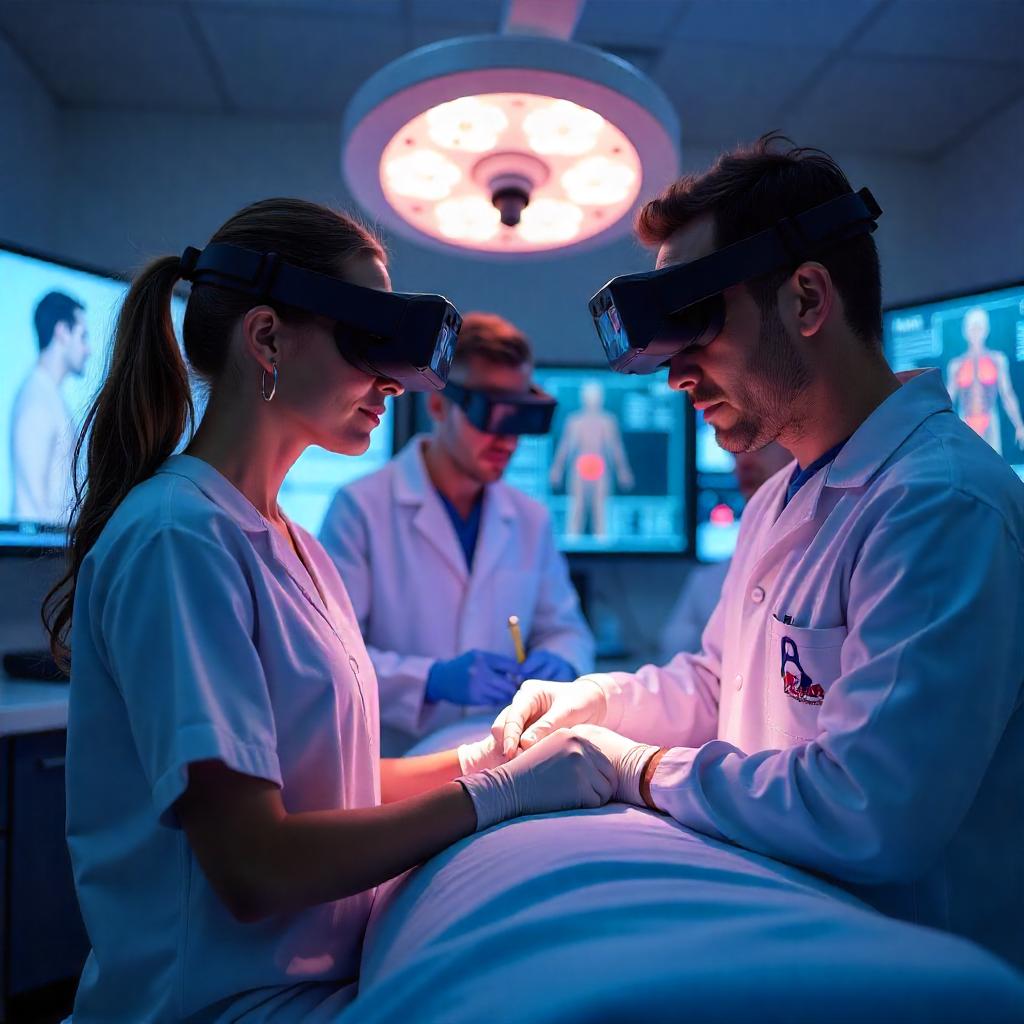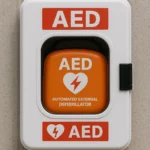
Transforming Diagnostics with AI and Machine Learning in 2025

AI in Diagnostics: Predicting Health Outcomes with Machine Learning
Why It Matters Today
AI to diagnose and treat patients is becoming an increasingly important trend in the healthcare industry. Why is this trend so crucial?
- Enhanced Speed: AI processes data faster than anyone.
- Predictive Power: Health outcomes are often predictable by machine learning, which makes early intervention possible.
Relevance for All Stakeholders
- For Patients: Imagine being given a health status profile before going to a clinic.
- For Researchers: Researchers can use data-driven outcomes to develop the protocols for treatment.
- For Healthcare Providers: AI can lighten the workload so caregivers can effectively manage the patient’s care. Ultimately, this technology is not just changing diagnostics; it is changing lives. By adopting AI, we get more than better health outcomes; we also get a healthier future.
Historical Context of AI in Diagnostics
Integrating machine learning in diagnostics has profoundly changed the healthcare sector. Diagnostics primarily depended on manual, subjective, and often conflicting processes, now bygone conventions.
Evolution in Healthcare
- 1900s: Only simple laboratory tests and physical examinations.
- 2000s: It started with the use of computerized systems and the introduction of data management systems.
- Today, AI changes diagnostics with perfect accuracy and in the blink of an eye.
Impact on Medicine, Technology, and Public Health
- Enhancement of accuracy: AI algorithms evaluate enormous data sets. Therefore, fewer misdiagnosis errors occur.
- Quicker outcomes: Fast turnaround times make patients recover sooner.
- Stir in public health: Using predictive analytics makes it possible to arrange the response to outbreaks and long-term diseases. Finally, AI in diagnostics doesn’t mean only technology; it’s the healthcare of the future with creativity included. It is a commitment to better health for all.
Current Landscape of AI in Diagnostics
Transformative Innovations
The application of AI in diagnostics has made healthcare utterly new by using machine learning to forecast the results of treatments very well. The latest innovations have proven AI’s competence in interpreting vast volumes of data, allowing for earlier disease detection and personalized treatment management.
- Quicker Results: Access to a diagnosis is available in just a few minutes through AI-based platforms.
- Increased Accuracy: The models trained by machine learning reach a maximum of 95% in some medical diagnostics.
- Healthcare Accessibility: Due to AI tools, many life-saving tests are being delivered to people without access to specialists.
Conclusion
The use of AI in diagnostics is not a fad but a significant shift in the evolution of health care, as it results in more intelligent, personalized patient care. Is it our turn yet to welcome this AI-influenced future?
Impact on Patients and Families
Nowadays, the acceleration in artificial intelligence used in diagnostics is having a momentous change in patient and their families’ lives.
Transforming Healthcare Outcomes
- Faster Diagnoses: Expressifiedly, AI can process data with high speed, thus manning to root out a gleaming swathe through clinicians’ time to get to decision-making and working by intuition.
- Personalized Treatments: By harnessing the power of machine learning, hospitals can offer customized treatments that are much more effective and, thus, are a joy to patients. Imagine that the AI-driven systems of the future will enable practitioners to prophesy and prevent most of the complications. In the meantime, the patients’ families can ensure their loved ones are treated with the finest care possible.
Quality of Life Improvements
- Reduced Anxiety: A quicker and more accurate diagnosis means transferring thoughts from the patient to the doctor is completed; thus, worry begins to diminish.
- Enhanced Monitoring: Patients have the chance to keep track of their health in real-time, which favors the idea of self-care that they can easily do. And yes, AI is not just a technological advancement but an enabler of a decent, sustainable environment for society.
Impact of AI in Diagnostics on Healthcare Professionals
Challenges Facing Healthcare Providers
Talent drought exposed delineation of the ability to make quick autonomous decisions among healthcare workers since they are redesigning the path by incorporating technology such as AI-based diagnostics. Nevertheless, they are also facing a list of challenges, which include:
- Training: The core clinical team must have high proficiency and responsibility to be able to interpret medical data. In turn, they would also demand extensive training and comfort in data analysis.
- Cost: Organizing AI solutions can be expensive, and unfortunately, it can drain finances if not done carefully.
Opportunities for Enhanced Care
Despite these trials, however, AI wonders for the management and treatment of patients:
- Efficient Resource Allocation: Using machine learning and data processing data to communicate issues, queries, resolutions, etc. The computer employed by the space for storing particular by-house data can be described as the computer data to the computer, which is the largest data generator for the data query process, to handle it.
- Improved Patient Care: Predictive care can be personalized, which can be done faster by patients being less likely to get them. At last, AI acceptance implies the healthcare sector’s dynamics change it for innovation.
The Rise of AI in Diagnostics
Why Embrace AI in Healthcare?
Implementing artificial intelligence technologies isn’t merely a fad; it is a process involving transforming healthcare facilities through technology that improves the efficiency and effectiveness of treatments. Can you visualize the prospect of diagnosing diseases before they develop? It’s the magic of AI! Add a new sub-heading just below the topic of the discussion and label it as “Key Benefits.”
- Early Detection: Looking and cost factors are controlled by scale-related possibilities. The system will be capable of better glycemic control.
- Customization: AI provides a tailor-made therapy course that can improve a patient’s prognosis predicated on the patient’s data.
- Cost Reduction: The healthcare systems can become more streamlined, which means the fewer resources they need, the lower the costs will be, thus, beneficial to the patients. In summary, fixing AI in diagnostics opens the way for the future, where patients will sit their therapy problems, and the robotic doctor will make the prescriptions. The field of AI proposes an evolution in patients rather than a revolution in healthcare.
Challenges in AI Diagnostics
Ethical Concerns for Patients
- Data Privacy: People are mainly concerned about how their health data could be used. In other words, who owns it?
- Bias in Algorithms: AI technology with incorrect data might result in misunderstandings or even false diagnosing cases, predominantly among vulnerable communities.
- Loss of Human Touch: A common worry is that an automated system may take over the essential human part of healthcare.
Researcher Perspectives
- Lack of Transparency: Researchers are perplexed by the computational mechanism behind AI decisions. This “black box” effect will make it more challenging to build trust.
- Limited Accountability: Who will answer if the AI goes wrong? The set of problems is big enough.
Regulatory Hurdles
- Rapid Advancement vs. Regulation: The growth speed of AI surpasses the capabilities of safety measures and may, therefore, introduce the risk of insafeness.
- Ethical Guidelines: The law is becoming up to date, and it is not easy to understand as there are many possible ways AI can be used in healthcare, and thus, it has to be covered by the law. Today’s contemporary healthcare is multifaceted, so the challenges must be addressed urgently and calmly.
Embracing AI in Diagnostics
Understand the Power of Machine Learning
Get AI tools to assist in your conditions. The ability of a computer to interpret large amounts of data can give insights into patterns that are not obvious to the human eye.
- Leverage Health Apps: Choose apps that make use of AI diagnostics. They can give experienced insights and predict potential health issues.
- Take the Initiative: How about virtual consultations on platforms like those? The quick advice from technology that mimics human conversation can help you figure out what to do next.
- Stay Informed: Another way your vital knowledge is maintained is by joining online forums and participating in present AI trends in healthcare. Get knowledge as your best friend!
Be Proactive and Curious
It’s way better to check your lifestyle and ensure that you are in good health than to wait for the symptoms to occur; monitoring and keeping up with the latest tech will do the trick. Such an approach is not only an intelligent one but also one that is living proof by integrating e-health records with personalized care!
The Future of AI in Diagnostics
Transformative Potential
AI technology is the one we will use to experience the awakening of a different diagnostics era in the not-very-far future. The machine learning process will enrich predictive reports, which will be done through the healthcare providers so that health prognoses can be predicted very efficiently.
Key Breakthroughs on the Horizon
- Real-time data analysis will, by its side, be extraordinary and enable us to give instant diagnostic feedback.
- AI, Personal Treatment of Patients is just around the corner. A future in which medical treatments are designed by considering individuals rather than the masses will soon happen with the help of technology. It is necessary for the continuous health monitoring of wearables to work together with AI as a means of maintenance.
- Integration with Wearable Tech will allow monitoring of health, etc, without cables and the like.
- Running your AI venture is more than a fad because it is a definitive stage in the technology journey. Besides this, bioinformatics and algorithm development career prospects in this data science field open up many new avenues for you to explore. The future is yours; therefore, you should be the boss of your life. Act now!
Why Should We Be Informed?
Healthcare is a field that is constantly changing, especially with AI becoming a factor in diagnostics. Being well-informed will help you to realize what is best for your health and future care.
Main Points:
- AI has already mastered health data analysis: The new mathematical techniques guarantee the detection of diseases far in advance.
- Ease of Running Hospitals: Time savings are essential for a general supervision job.
- Personalized healthcare: One person, one illness, the patient will now be guided by a ‘personal digital twin.’ Keeping alert is the best policy. Do not pass by the road of your health without notice. Are you excited to welcome these new developments? Learn more about how AI is reconfiguring the once-traditional means of diagnostics, and discuss your options with the specialists today!












Post Comment